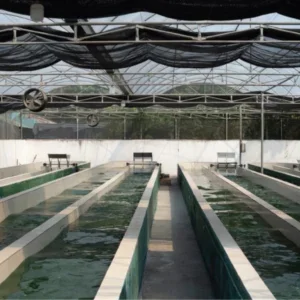
There are few better ways to start a conversation about the rise of global health concerns than with someone who has just completed a full month of self-isolation; particularly when that person is Vinciane Patelou, director of The European Plant Based Food Association. After contracting Covid-19 herself, Patelou’s children caught the virus in domino effect, extending their homebound status for a full four weeks and providing plenty of time to ponder the importance of personal health, and with that, the rise of plant-based eating.
Whether the trend is recent depends on who you’re asking, but its acceleration in the past few years has undoubtedly been driven by a swelling pool of health-conscious consumers. According to ENSA, the drive towards plant-based food and ingredients is caused by three things: health, sustainability and ethics. And while vegans themselves might be the most enthusiastic consumers, according to Patelou, this surge in plant-based foods and ingredients is “not driven by veganism, but by flexitarianism”.
Another word to join our modern lexicon, “flexitarians” or “reducers” are a fast-growing consumer group opting to cut down on their meat and dairy consumption rather than change their diet completely. After all, in order for plant-based products to grow lasting roots in the industry, they must appeal to those interested in cutting down as well as those cutting out. “You can’t just replace a steak with pulses. It’s a whole different way of cooking and people want convenience,” Patelou explains. It’s easier to order a vegan burger in a restaurant than it is to learn the art of cooking mapo tofu.
What ENSA is hearing from its members and consumer research is that reducers currently make up the largest share of consumers in the plant-based market. Research conducted by ProVeg supports this, revealing that the most common reason consumers are buying new products is to try something new.
The lure of change
Beyond the novelty of trying something healthier, changing the culture of how we eat is a momentous challenge, and one that varies from place to place. As Carlotte Lucas, corporate engagement manager at GFI, notes, “We are so tradition-bound, food is so ingrained in our culture that giving something up is really hard.”
Patelou concurs, as a native Frenchwoman, she fully understands the reality of a reluctant market. “Different consumers have different motivations. People feel very strongly about their diets, it’s part of culture. I’m French, so you can’t imagine how hard it is for us. I’m sure Italians and Polish people feel the same about their food culture.”
Some countries are responding faster than others, but even places where cote de boeuf and crème brulée are intrinsic to the national cuisine, salad and chips no longer cut the mustard as the only vegetarian option. Consumer expectations are growing along with the trend, and those that don’t keep up will eventually stand to lose out.
Shared responsibility
While consumer curiosity and personal health is important, the sustainability drive is the obvious beneficiary here. Livestock agriculture accounts for 51% of greenhouse gas emissions worldwide. Plant-based eating, at least for reducers, may soon become less of a whim and more of a necessity. Lucas notes that, “as the population grows in the future from eight billion people to ten billion, we need to be able to feed everyone and we need to do it in a healthy, sustainable way”.
The onus of saving the planet is one that must be shared between producers and consumers alike. When it comes to consumer demand, that can be – and is being – shaped by a new kind of thoughtful consumer; people who read the ingredients label and take interest in the origin story of their produce. This is particularly true among high-income and young consumers, as well as parents of young children.
With an awareness that habits need to change one way or another, Lucas suggests it’s these new consumers who are set to reshape the market. “People aren’t eating meat because of the way it’s made; they are eating it in spite of how it’s made. With plant-based food, people can have the same products, but they are just made in a better way.”
Invariably, it’s the younger cohort of principled Gen Z consumers who are going to shape how food is consumed and marketed in the future. “I think these types of people tend to buy with purpose and ethics in mind,” Lucas says. So how can major retailers and manufacturers in the F&B industry make use of this trend? By understanding two things: the mindful consumers of the future, and their own social responsibility as suppliers in making the industry more sustainable. The novelty of offering a ‘beet’ burger or seitan ‘ribs’ on an otherwise meat-based menu is going to attract vegans, mindful consumers and reducers alike, ultimately generating capital for the brand – reputational or otherwise.
Mindful consumers want to know that the brands they buy from align with their values – particularly those in mature markets in developed countries, such as the UK. As for the rest of the manufacturing process? Using sustainable packaging, Patelou observes, is “[another] part of the brand’s reputation” or rather another facet of a strategy to forge a conscientious brand identity. “I think they know that you can’t tell the consumer that you’re sustainable and then not follow through,” Patelou says.
38.9%
The percentage of people who follow a plant-based diet because it makes them feel healthier.
Euromonitor
51%
Livestock agriculture accounts for more than half of greenhouse gas emissions worldwide.
Forbes
“We are so tradition-bound, food is so ingrained in our culture that giving something up is really hard.”
Carlotte Lucas
Action in the shopping aisles
Is there a worry that companies are jumping on the trend for the wrong reasons, and might this compromise the long-term potential of the plant-based industry? Lucas doesn’t think it matters. “We have 20, max 30, years to meet our Paris Climate Agreement goals and we are not on track in the slightest. We need everyone to get involved regardless of motivation.” Instead, Lucas thinks meat corporations getting involved in the trend will serve as the boost “that’s really needed to scale up this industry”.
In order to reach net-zero by 2050, Patelou is also conscious that the meat and dairy industry needs to take a hit. “When you see the scientific consensus, it confirms that if we don’t change out diet and move to a more plant-based one, we are not going to be able to meet our climate targets.”
One solution, proposed by the UK government, is a tax on meat and dairy products. The measure would cost £242m but would also result in reduced climate emissions in the region of £100m per year. It sounds promising. But is penalising people for eating meat the best solution? Neither Patelou nor Lucas think so.
“At GFI we believe in making choices easier for people” Lucas says, “I think tax on meat in general should exist because there are lots of things that aren’t incorporated into the price we pay for meat. But making plant-based products affordable, delicious and available is such a great option because it won’t have the backlash.”
Patelou agrees. “As far as we’re concerned, the priority is equalisation. We don’t want the plant-based option to be more expensive than the animal-based option. Tax reduction on plant-based options would be better than making anything more expensive.”
“When you see the scientific consensus, it confirms that if we don’t change out diet and move to a more plant-based one, we are not going to be able to meet our climate targets.”
Vinciane Patelou
22%
The percentage of meat consumption that could come from alternative proteins if governments invest in R&D.
Blue Horizon
The legs to last
It’s all well and good looking at the rapid progress of mature markets like the UK – ranked the number one country for veganism in 2020, with 39% of Britons planning to further reduce their meat consumption after the pandemic – but they are not the ones industry stakeholders are worried about.
When it comes to population growth, as Lucas points out, “it’s not going to be Europe or the US, it’s going to be in China and India”. In those markets, an entirely different and tailored approach is required to see plant-based eating take off in the same way.
One of the main obstacles is price. After all, less capital invariably means that plant-based products need to cost the same as or less than meat products. “The same burger that becomes famous in the US is not necessarily going to be what someone in China wants to eat,” Lucas says. “So adapting products to local consumers is going to be essential for this to work around the world.” Where you might now be able to visit the British coastline without being shocked to find vegan scampi and chips on the menu, other parts of the world are moving at a different pace.
Fail to prepare, prepare to fail
GFI works directly with product ecosystems to accelerate this change, operating a science and technology team, a business and corporate engagement team and a policy team to ensure there’s a fair and level playing field for all new products entering the market. “A lot of our funding goes on R&D,” Lucas admits.
As a corporate engagement manager, Lucas knows that for plant-based products to thrive in the market they need to compete with enticing meat-based options that are currently only a Deliveroo away. “We’re not talking about products that existed in the 80s or 90s, we’re talking about products where eventually consumers won’t be able to tell the difference”. The difference? The amount invested in research and development.
This, according to Lucas and Patelou, is the key ingredient for this trend to last. “I hope the companies with products that are still here in ten years are the ones who have developed sustainable strategies, which is the case for many of our members,” Patelou says. In France, for example, you can’t label any plant-based products with meat names, making it harder for reducers or reluctant consumers to make a change. “These things are slowing down progress – not stopping it – the consumer trends are there, but it will be slower.”
Only by creating sustainable and ethical products that look the same, taste as delicious and don’t break the bank will companies make an impact long-term. This is the reason brands such as Beyond Meat and Impossible Foods are so successful. “They’ve spent hundreds of millions of dollars on R&D investment before they launched products on the market. They put in the work,” Lucas adds.
This is also the responsibility of governments. “If [they] invest [in R&D] we could reach a scenario where 22% of all meat consumption is from alternative proteins. Governments play a really important role in driving engagement,” Lucas stresses. A fraction that sounds achievable, but only with critical engagement across the board and some real changes to how we consume and think about food.
As for an entirely plant-based future? Patelou doesn’t think it’s necessary, or even desirable. “One third of protein from animals, two thirds from plants,” she advises. Meat and two veg. If you think about it, it’s really not that different.





